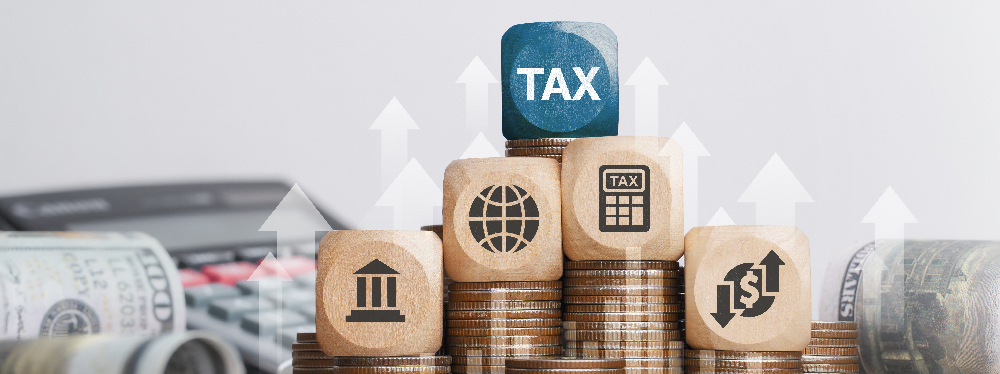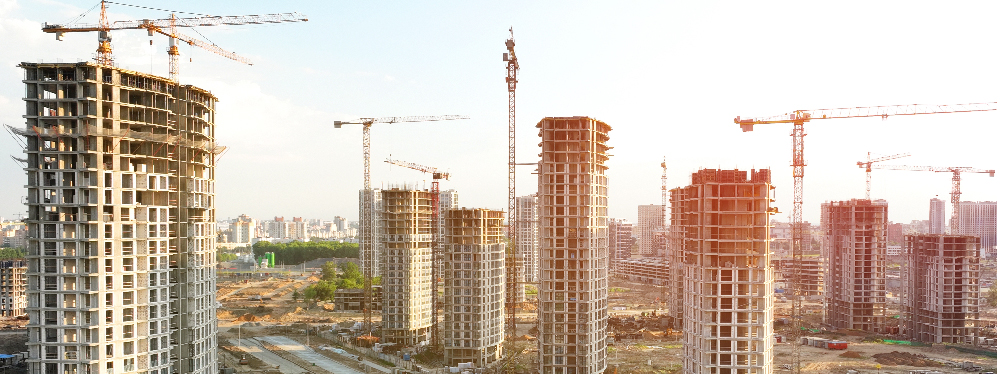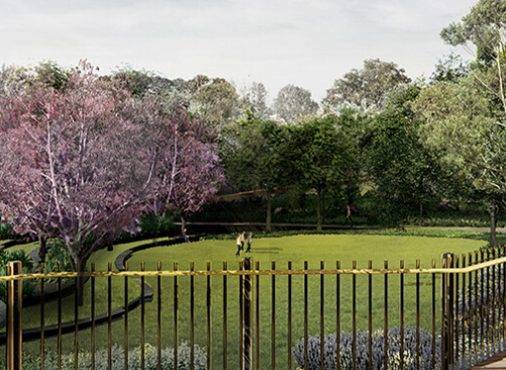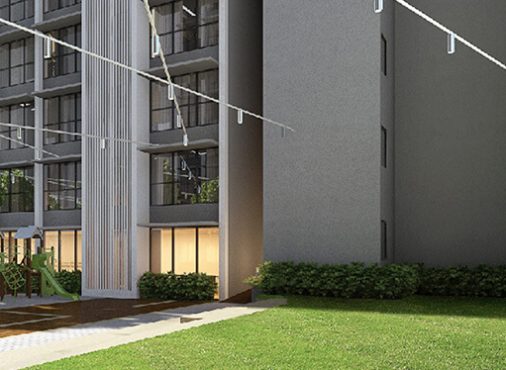If you want to buy a house as a future investment or do not plan to move in immediately, investing in under-construction properties can be a masterstroke. They are more affordable than ready-to-move-in homes, have lower EMIs, and offer a high potential for future appreciation.
Moreover, the Indian Government offers a plethora of under-construction property tax benefits, making it an ideal investment avenue for long-term investors. So, if you are planning on investing in property that is still under development, you are at the right place.
We will cover all the tax benefits, their criteria, and more, enabling you to make an informed decision.
Keep reading!

Understanding the Basics
An under-construction property is a real estate project that is currently under development and is not yet ready for occupancy. Developers offer considerable discounts on such properties during pre-launch offers, and banks offer easy finance options to fund your purchase.
Now, there are certain key terms in this regard which you must understand:
- Pre-construction Period: Refers to the time period from borrowing money till the construction of the property is completed.
- Possession Date: The date on which the buyer takes ownership of the property.
- Completion Date: The date on which the property is transferred to the buyer by handing over the title deed, and the money is paid to the seller.
Tax Benefits under Section 24(b)
As per Section 24(b) of the Income Tax Act, you can avail of a tax benefit of up to ₹2 Lakh per financial year on your home loan interest payments. This includes the interest accrued during the current year and 1/5th of the interest you paid during the pre-construction period.
However, this deduction is not applicable to properties under construction. It is only available when the construction is complete and you have gained possession of your property.
Moreover, the construction must be completed within 5 years from the last date of the financial year in which you applied for the home loan. Otherwise, after possession, you can avail a maximum tax benefit of only ₹30,000 per financial year.
So, to gain tax benefit on home loan for under construction property before possession, proper planning is a must.
Tax Deductions under Section 80C
Section 80C of the Income Tax Act allows you to avail a maximum deduction of ₹1.5 Lakh per financial year. Now, when you buy an under-construction property through a home loan, the EMI that you pay only includes the interest part.
Thus, as Section 80C offers tax deductions for the principal part of your home loan repayments, you can only avail of this benefit after the pre-construction period ends. However, you are eligible to claim a deduction for the stamp duty and registration charges.
Now, there is a catch. If you sell off your property within 5 years from the last day of the financial year in which you gained possession, all these tax benefits will be reversed.
Furthermore, if you start paying regular EMIs before project completion in order to pay off the loan within a shorter tenure, you cannot claim any deduction for the principal amount payments made within this time period under Section 80C.
Additional Deductions under Section 80EEA
Section 80EEA enables you to get additional under-construction property tax benefits of up to ₹1.5 Lakh per financial year. It is applicable on the interest payments of your home loan and is calculated over the ₹2 Lakh limit offered by Section 24(b).
Moreover, unlike Section 24(b), you can claim the tax deductions under Section 80EEA during the pre-construction phase.
However, there are a few criteria that you must fulfil, which are:
- You must be an individual taxpayer and a first-time home buyer.
- The home loan should have been sanctioned between 1st April 2019 and 31st March 2022.
- You should not own any residential property as of the loan sanction date.
- The property’s stamp duty value must be equal to or less than ₹45 Lakh.
- If you are purchasing property in metro cities, the carpet area should not exceed 645 sq. ft.
- For properties in non-metro areas or towns, the carpet area must not exceed 968 sq. ft.
Read Also: TDS on Sale of Property by NRI in 2024
Pre-Construction Interest
The home loan interest that you paid during the pre-construction period is known as the pre-construction interest. You can claim the total interest paid during this time period under Section 24(b) after the construction is complete in 5 equal instalments.
However, to claim this under-construction property tax benefit, there are a few conditions that need to be met:
- The loan must have been availed for the construction or acquisition of a residential property.
- Property construction should be completed within 5 years from the last day of the financial year in which the home loan was obtained.
- No deduction must have been claimed for the interest under any other section of the IT Act.
Real-Life Example of Pre-Construction Interest Deduction
Now, it may be a little confusing for you to comprehend how to claim a pre-construction interest deduction in 5 equal instalments. To help you understand, here is a real-life example.
Suppose Pallavi has taken out a home loan to invest in an under-construction property in Kolkata. The loan details are as follows:
| Particulars | Values |
| Loan amount | ₹40,00,000 |
| Loan date | December 2019 |
| EMI | ₹45,000 |
| Construction completion date | January 2021 |
As the construction of the property has been completed, Pallavi is eligible to claim a deduction on the pre-construction interest while filing her returns for FY 2021-22.
So, her total EMI payments in FY 2021-22 = ₹45,000 X 12 = ₹5,40,000. Now, out of this amount, suppose the principal repayment was ₹2,40,300. Thus, the interest payment for FY 2021-22 amounts to ₹2,99,700.
Now, let’s calculate the interest for the pre-construction period (December 2019 to January 2021):
| Financial Year | Period | EMI Calculation |
| 2019-20 | December 2019 to March 2020 | ₹45,000 X 4 = ₹1,80,000 |
| 2020-21 | April 2020 to March 2021 | ₹45,000 X 12 = ₹5,40,000 |
| Total | = ₹7,20,000 |
Therefore,
- ₹3,20,400 out ₹7,20,000 went towards principal payments.
- While ₹3,99,600 went towards pre-construction interest payments.
Now, starting from FY 2021-22, Pallavi can claim the pre-construction interest in five equal instalments that amount to:
= ₹3,99,60/5
= ₹79,920 per financial year
Thus, while filing her taxes for FY 2021-22, Pallavi’s home loan interest amounts to (₹2,99,700 + ₹79,920) ₹3,79,620, on which she can get a maximum deduction of ₹3,50,000 (under Section 24(b) and Section 80 EEA).
Read Also: Benefits in Real Estate for Women Buyers: Key Advantages Explained
Strategic Investment in Under-Construction Properties
If you wish to buy a home to secure your future, purchasing an under-construction property can be more beneficial. However, to gain tax benefits on home loans for under-construction property before possession, strategically planning your investment is a must.
Essentially, there are two ways you can fund your purchase:
-
Availing a Home Loan
If you purchase an under-construction property by taking out a home loan, you must ensure that the construction ends within five years from the last day of the financial year in which the loan was sanctioned.
You can claim tax benefits on stamp duty and registration charges under Section 80C, but you need to wait until you get possession to take advantage of deductions on the principal and interest amount.
Risks Involved: If the construction is not completed within 5 years, the maximum deduction on home loan interest payments under Section 24(b) will be reduced to ₹30,000 per financial year.
Also, you cannot sell your new property within 5 years from the last day of the financial year in which you gained possession of your home. If done, all the tax benefits under Section 80C will be reversed.
-
Selling Your Old Property
If you are selling your old house in order to buy an under-construction property, you need to schedule your purchase between 1 year before and 2 years after the date of sale of your old residential property. Moreover, construction must be completed within 3 years from the sale of your old house.
Risks Involved: If the date of possession is delayed beyond the given timeframe, long-term capital gains tax at the rate of 20% will apply.
Whatever your decision, if you are aiming for properties under 1 crore, the luxurious apartments at Rustomjee are all you need. You can enjoy the benefits of community living, surrounded by vast spaces and luscious greenery, while all the social amenities you need are within walking distance, facilitating a relaxed and comfortable lifestyle.
Check out the properties at Rustomjee and make the best investment of your life!
FAQs
- What is the maximum tax benefit available on under-construction properties?
For under-construction properties, you can avail of a maximum tax benefit of ₹1.5 Lakh per financial year under Section 80C only on the stamp duty and registration charges. Moreover, you can claim deductions up to ₹1.5 Lakh within a financial year under Section 80 EEA on the home loan interest amount in case you are eligible.
- Can I claim tax benefits if the project construction is delayed?
If the project construction is slightly delayed, it will not affect your under-construction property tax benefits. However, it must be completed within 5 years from the last date of the financial year in which you applied for the home loan.
Otherwise, after possession, you can avail of a maximum tax benefit of only ₹30,000 per financial year under Section 24(b) on the home loan interest.
- How do tax deductions differ for self-occupied vs. rented properties?
For self-occupied properties, you can claim a maximum deduction of ₹2 Lakh per financial year on the home loan interest payments. However, for rented properties, you can claim a deduction on the entire interest amount.
- Can I claim tax deductions under Section 80C for under-construction properties?
Under Section 80C, you can claim tax deductions of up to ₹1.5 Lakh per financial year for under-construction properties. However, this is only available on stamp duty and registration charges.
- Can I claim 80EEA for under-construction property?
You can claim deductions under Section 80 EEA for under-construction property only if you clear the eligibility criteria.
- What is the applicable tax rate on under-construction property?
To buy under construction property, you need to pay 5% GST, and for affordable housing properties priced up to ₹45 Lakh, the GST rate is 1%.








